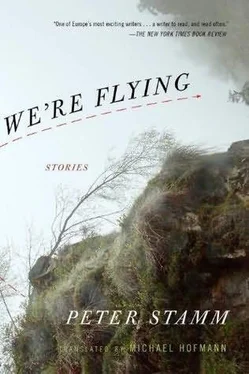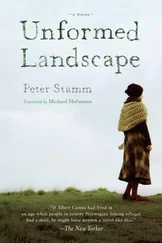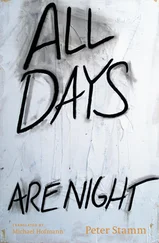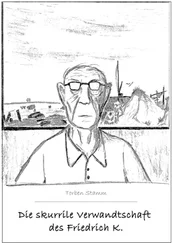It’s on the house, she said, and he said thank you again and left.
Alfons did the shopping, then he paid bills and checked on things in the tunnel and in the beehives. He kept having to think of Lydia. She was no beauty, she was small and stoutish, her hair was cut very short, and she had bad acne on her face. But she had a nice way with her, and her voice was beautiful and warm.
At lunchtime he went down again. It was still cloudy, and muggily warm. He showed the man at the gate his white plastic armband. The guy said he had to wear it, and they argued about that for a while. Finally, Alfons gave in. Onstage the band was playing a sort of mixture of folk and rock. It was much quieter than it had been last night, and Alfons stood for a while in the sparse crowd. Then he went to the food tent and got himself a helping of macaroni with tomato sauce. He looked around to see if he could see Lydia, but she wasn’t there. He ate his lunch and went back up to the farm.
IN THE AFTERNOON, he was fooling around with his machinery when suddenly he heard Lydia’s voice. Is there anyone there? Alfons pulled himself up and saw her standing in the doorway of the barn. Here I am, he said, and approached her. His hands were coated with grease, and he put on an apologetic expression. Lydia squeezed his forearm, shook it, and said, Hello, I was just coming by and thought I’d look in on you. Alfons asked, Can I treat you to a coffee back? Sure, she said, but did he have anything else?
Alfons scrubbed his hands in the trough, then he showed Lydia into the house and poured two glasses of his home-pressed apple juice. How come you’re not working? he asked.
I was on the early shift, she said. Of course. Alfons nodded. They all prefer the late shift, she said, and smiled. But I’m used to getting up early.
I’m an early riser too, he said.
I thought only dairy farmers have to turn out early.
My father has cows. Once you’re used to it, it’s a hard habit to break. He poured them some more juice and they drank it silently. Would you like to have a look around the farm?
Very much, said Lydia.
Alfons was surprised how much Lydia knew. When they were with the bees, she asked him if he had had trouble as well, she had read that lots of bee colonies were ailing.
I was lucky, he said, I only lost one hive, and that wasn’t because of illness. The queen must have been old. They got a new one in, in the fall, but presumably it was too late. I don’t think there were any drones left to fertilize her. In spring the hive was empty.
A few odd bees buzzed around their heads, Lydia ducked, and Alfons shooed them away with his hand. Thank you, she said, and smiled.
He was surprised how much he had to say, while he showed her around. He showed her the fruit orchard and the vegetable fields, talked about organic fertilizers and pest control. The farmers in the valley can water their fields with groundwater, or they pump it out of the Thur, he said, but up here I have no water. Just out of the mains, and that’s too expensive.
All along, the music had been quietly audible, a songwriter was singing for the children, a comedian did his show, and later an acoustic group played traditional ballads. There were long pauses between sets, while a DJ played records. It started raining again. Lydia asked Alfons if he felt like wandering down and eating something. We can always sit in the tent.
WHILE THEY WERE LOOKING for space at one of the long tables, the music suddenly kicked in again, and people leaped up and ran in the direction of the stage. As they ate, Alfons and Lydia exchanged few words, and those were shouted so that they could be heard. It’s so amazing, shouted Lydia, down in the village you can’t hear anything at all. Do you know who’s playing? Alfons shouted back. She shook her head and slid a program to him across the table. He hadn’t heard of a single one of the bands. She pointed to one of the names with her finger, and said right in his ear, They’re the ones I really want to see. He read the name of the band, Gallowbirds, and shrugged his shoulders. Never heard of ’em.
When they had finished eating, Lydia wanted to go over to the stage, and Alfons went with her. They snaked their way through the crowd, which still wasn’t all that dense, to the front. He kept in her wake. The band was playing a South American—inflected number, and Lydia began to dance. First she started to sway her shoulders and turn her head this way and that, as if she were looking for someone, then she started to move her hands about, and her arms, and she made circling motions with her pelvis like a belly dancer. Not many people were dancing, but that didn’t seem to bother Lydia. Her movements were fluent; they seemed natural and unaffected. It was as though she managed to infect the others, because after a while everyone around Alfons was dancing, only he stood there, feeling increasingly ill at ease. He was glad when the band played their last song and left the stage to applause. Lydia took his hand and pulled him out of the crowd. Her face and hair were shining from the rain and the exertion. Where the crowd was not so bunched together, she let go of his hand and they walked together to the food tent. I’m thirsty, she said, wiping the sweat from her brow. It still felt warm.
No sooner had the next band started playing than Lydia wanted to go back to the front. She pointed to Alfons’s boots and said, No wonder you can’t dance in those. She herself wore a pair of ancient, muddied flip-flops. He hesitated briefly, then he pulled off his boots and socks, stood them next to the bar, and followed her. He looked around uncertainly, but everyone was preoccupied with themselves, and no one seemed to notice him. Lydia started dancing again right away. The crowd in front of the stage was thicker now, and people were bumping into Alfons the whole time. Finally he began to move himself, at first in a spirit of evasion, then later in a sort of dance, staggering back and forth to the music. Perhaps it was the beer that had relaxed him, perhaps the falling darkness. He didn’t care that he could see Klemens and Jasmine nearby, also dancing, and he shut his eyes, and raised his face to the heavens, and felt the fine raindrops and the deep mud into which his feet sank.
During the next break they remained in front of the stage without talking much. Next up was the group Lydia wanted to hear, four men of around fifty. It must be ten years since they last played together, said Lydia, one of them works in television now, that guy over there. It wasn’t really dance music, but plenty of people in the crowd seemed to know the songs, sang along, and danced in a vague sort of way. Alfons stood right behind Lydia. During one ballad she leaned against him and he put his hands around her waist and felt her moving. You can always stay , sang the men, I’m not going anywhere . When Alfons looked around he saw Jasmine, who smiled at him and nodded, and he smiled back.
They stayed until the end. Then they went to the bar and had another beer. All around, people were standing and chatting and laughing. Alfons found his boots where he had left them, and he carried them when he left the festival site with Lydia. There was no one standing at the gate now, and he ripped off his white plastic armband. He looked down at the ground, which was covered with rubbish, and put the armband in his pocket. Are you not camping, then? he asked, once they had reached the road at the top. From the parking lot farther down, they could hear doors being slammed and the sound of car engines getting quieter, then disappearing altogether.
No, said Lydia. I thought about it, but the forecast was so rotten, I didn’t feel like it.
So now you have to drive home? Are you good to drive?
Читать дальше







![Brian Jacques - [Flying Dutchman 01] - Castaways of the Flying Dutchman](/books/128851/brian-jacques-flying-dutchman-01-thumb.webp)




